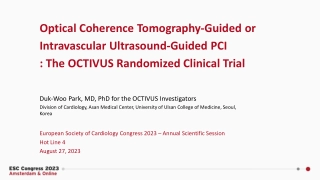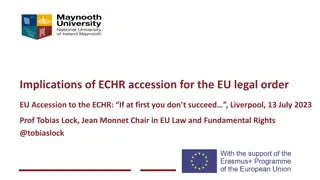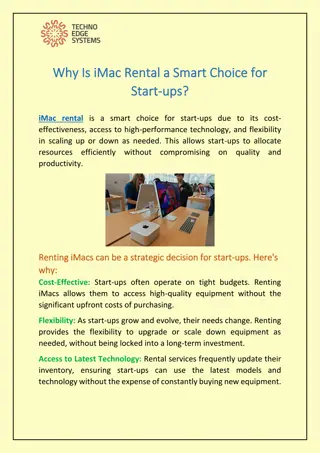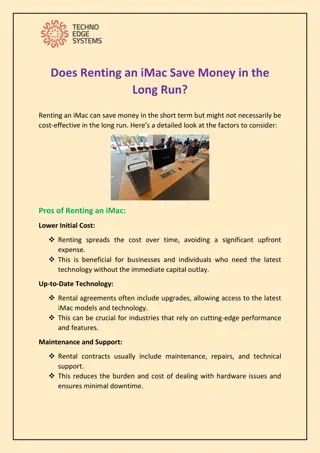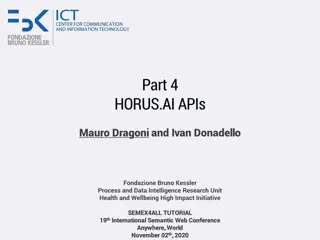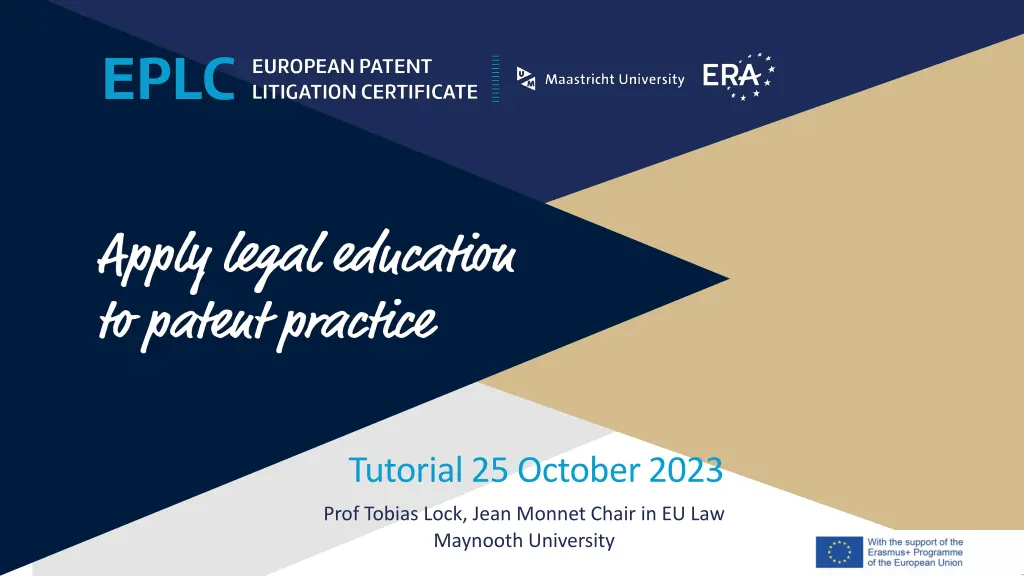
EU Law Tutorial on Preliminary References and Article 21 UPC
Explore the significance of preliminary references in EU law and the cooperation between national courts and the Court of Justice of the European Union, as outlined in Article 21 of the Unified Patent Court Agreement. Learn about the process of requesting preliminary rulings and the role of the Court of Justice in ensuring the uniform interpretation of Union law. Discover how national courts can seek guidance on EU law interpretation and validity through preliminary rulings.
Download Presentation

Please find below an Image/Link to download the presentation.
The content on the website is provided AS IS for your information and personal use only. It may not be sold, licensed, or shared on other websites without obtaining consent from the author. If you encounter any issues during the download, it is possible that the publisher has removed the file from their server.
You are allowed to download the files provided on this website for personal or commercial use, subject to the condition that they are used lawfully. All files are the property of their respective owners.
The content on the website is provided AS IS for your information and personal use only. It may not be sold, licensed, or shared on other websites without obtaining consent from the author.
E N D
Presentation Transcript
Tutorial 25 October 2023 Prof Tobias Lock, Jean Monnet Chair in EU Law Maynooth University
Outline 1. Preliminary references a. Article 21 UPCA b. What are preliminary references? c. References from the UPC BREAK 2. General Discussion
Article 21 UPCA Article 21 Requests for preliminary rulings As a court common to the Contracting Member States and as part of their judicial system, the Court shall cooperate with the Court of Justice of the European Union to ensure the correct application and uniform interpretation of Union law, as any national court, in accordance with Article 267 TFEU in particular. Decisions of the Court of Justice of the European Union shall be binding on the Court.
What are preliminary rulings? Article 267 The Court of Justice of the European Union shall have jurisdiction to give preliminary rulings concerning: (a) the interpretation of the Treaties; (b) the validity and interpretation of acts of the institutions, bodies, offices or agencies of the Union; Where such a question is raised before any court or tribunal of a Member State, that court or tribunal may, if it considers that a decision on the question is necessary to enable it to give judgment, request the Court to give a ruling thereon. Where any such question is raised in a case pending before a court or tribunal of a Member State against whose decisions there is no judicial remedy under national law, that court or tribunal shall bring the matter before the Court. [ ] --------------------------------------------------
What are preliminary rulings? Preliminary rulings: allow the national courts to ask the ECJ questions on the interpretation of EU law validity of EU Law courts of last instance must refer such questions exceptions (Case C-283/81 CILFIT): question is irrelevant to the outcome of the case answer to the question is obvious (acte clair) ECJ has already answered the question in another case (acte clair ) other courts may refer such questions exception: validity of EU law is at stake they must refer (Case C-314/85 Foto Frost)
What are preliminary rulings? Court of Justice A n s w e r ? ? ? national court Judgment
What are preliminary rulings? Purpose: To ensure the uniform application and interpretation of EU law throughout the EU How do they work? national court stays proceedings and sends questions to the ECJ ECJ checks admissibility Procedure written procedure possibly oral hearing possibly Opinion by an Advocate General then answers the questions sends the answer back to the national court takes about 18 months national court continues proceedings and hands down judgment based on ECJ answers
UPC and preliminary rulings (hypothetical) Example: The Munich Central Division of the UPC hears a case concerning a patent infringement. When it comes to the determination of damages, it has a question concerning the interpretation of Article 13 of Directive 2004/48/EC on the enforcement of intellectual property rights. The defendant before the Central Division insists that the case should be referred to the ECJ. The claimant opposes this as unnecessary and too costly. Is the Central Division obliged to refer the matter to the ECJ? What if the case arose before the Court of Appeal of the UPC? What if the ECJ has already provided an answer to that question in another case in 2021?
Union law = notably: Regulation (EU) No 1257/2012 implementing enhanced cooperation in the area of the creation of unitary patent protection Regulation (EU) No 1260/2012 implementing enhanced cooperation in the area of the creation of unitary patent protection with regard to the applicable translation arrangements Biotech Directive 98/44 SPS Regulations (concerning patents) Regulation 469/2009 concerning the supplementary protection certificate for medicinal products Regulation 2019/933 concerning the supplementary protection certificate for medicinal products Regulation 1610/96 concerning the creation of a supplementary protection certificate for plant protection products Enforcement Directive 2004/48 Brussels I Regulation No 1215/2012 (on jurisdiction and the recognition and enforcement of judgments in civil and commercial matters) as amended by Regulation 542/2014 amending Regulation (EU) No 1215/2012 as regards the rules to be applied with respect to the Unified Patent Court and the Benelux Court of Justice UPC and preliminary rulings Article 21 UPCA: As a court common to the Contracting Member States and as part of their judicial system, the Court shall cooperate with the Court of Justice of the European Union to ensure the correct application and uniform interpretation of Union law, as any national court, in accordance with Article 267 TFEU in particular. Decisions of the Court of Justice of the European Union shall be binding on the Court. Article 24 UPCA: Sources of law 1. In full compliance with Article 20, when hearing a case brought before it under this Agreement, the Court shall base its decisions on: (a) Union law, including Regulation (EU) No 1257/2012 and Regulation (EU) No 1260/2012 ( 1 ); (b) this Agreement; (c) the EPC; (d) other international agreements applicable to patents and binding on all the Contracting Member States; and (e) national law.
General discussion Do you have questions on: the videos; preliminary rulings; anything else on EU law?
General discussion The EU Commission has plans to introduce the following draft legislation: A Directive banning discrimination of persons due to their disability, age, sexual orientation and religion in the provision of goods and services. This Directive aims to complement and expand existing provisions laid down in Directive 2000/78, which prohibits discrimination on these grounds, but only in the fields of occupation and employment. A Regulation introducing an EU-wide patent. A Regulation providing every EU citizen with free primary care (access to a General Practitioner and medication) in every EU Member State. The Regulation would outlaw it for Member States to make GP visits and pharmacy prescriptions subject to a charge. Questions: For each envisaged piece of legislation: does the EU have competence? If the EU has competence: what would be the legislative procedure in each case? What is the difference between a directive and a regulation? Does the difference matter?
General discussion The EU Commission has plans to introduce the following draft legislation: A Directive banning discrimination of persons due to their disability, age, sexual orientation and religion in the provision of goods and services. This Directive aims to complement and expand existing provisions laid down in Directive 2000/78, which prohibits discrimination on these grounds, but only in the fields of occupation and employment. Does the EU have competence? If the EU has competence: what would be the legislative procedure in each case? What is the difference between a directive and a regulation? Does the difference matter? Article 19 (1) TFEU 1. Without prejudice to the other provisions of the Treaties and within the limits of the powers conferred by them upon the Union, the Council, acting unanimously in accordance with a special legislative procedure and after obtaining the consent of the European Parliament, may take appropriate action to combat discrimination based on sex, racial or ethnic origin, religion or belief, disability, age or sexual orientation.
General discussion The EU Commission has plans to introduce the following draft legislation: A Regulation introducing an EU-wide patent. Questions: For each envisaged piece of legislation: does the EU have competence? If the EU has competence: what would be the legislative procedure in each case? What is the difference between a directive and a regulation? Does the difference matter? Article 118 TFEU In the context of the establishment and functioning of the internal market, the European Parliament and the Council, acting in accordance with the ordinary legislative procedure, shall establish measures for the creation of European intellectual property rights to provide uniform protection of intellectual property rights throughout the Union and for the setting up of centralised Union-wide authorisation, coordination and supervision arrangements.
General discussion Article 6 TFEU The Union shall have competence to carry out actions to support, coordinate or supplement the actions of the Member States. The areas of such action shall, at European level, be: (a) protection and improvement of human health; (b) industry; (c) culture; (d) tourism; (e) education, vocational training, youth and sport; (f) civil protection; (g) administrative cooperation. The EU Commission has plans to introduce the following draft legislation: A Regulation providing every EU citizen with free primary care (access to a General Practitioner and medication) in every EU Member State. The Regulation would outlaw it for Member States to make GP visits and pharmacy prescriptions subject to a charge. Questions: For each envisaged piece of legislation: does the EU have competence? If the EU has competence: what would be the legislative procedure in each case? What is the difference between a directive and a regulation? Does the difference matter? NO SPECIFIC COMPETENCE to introduce free GP care.

